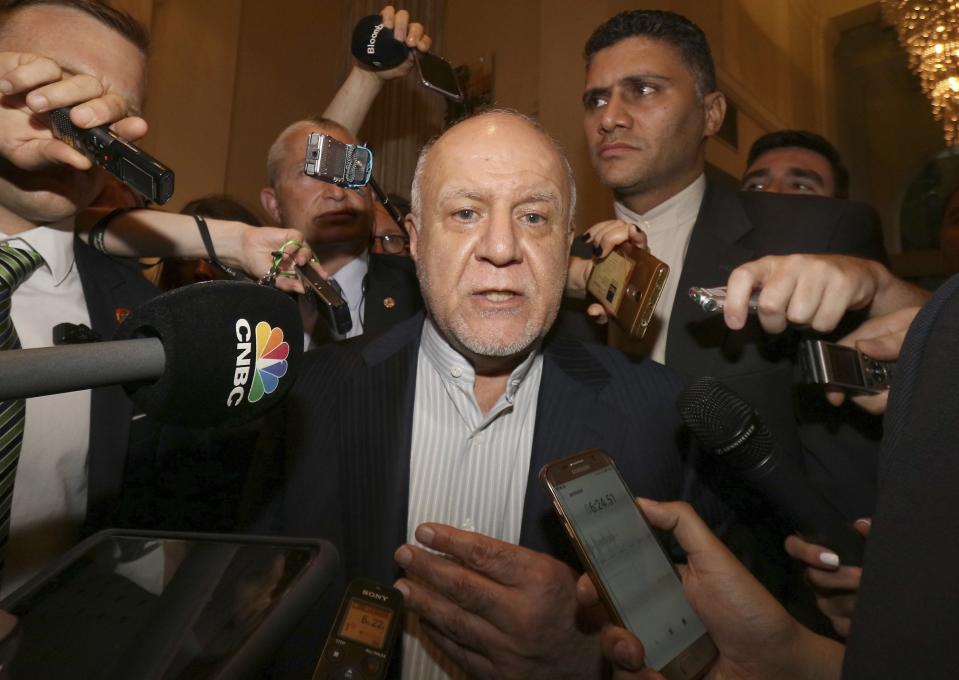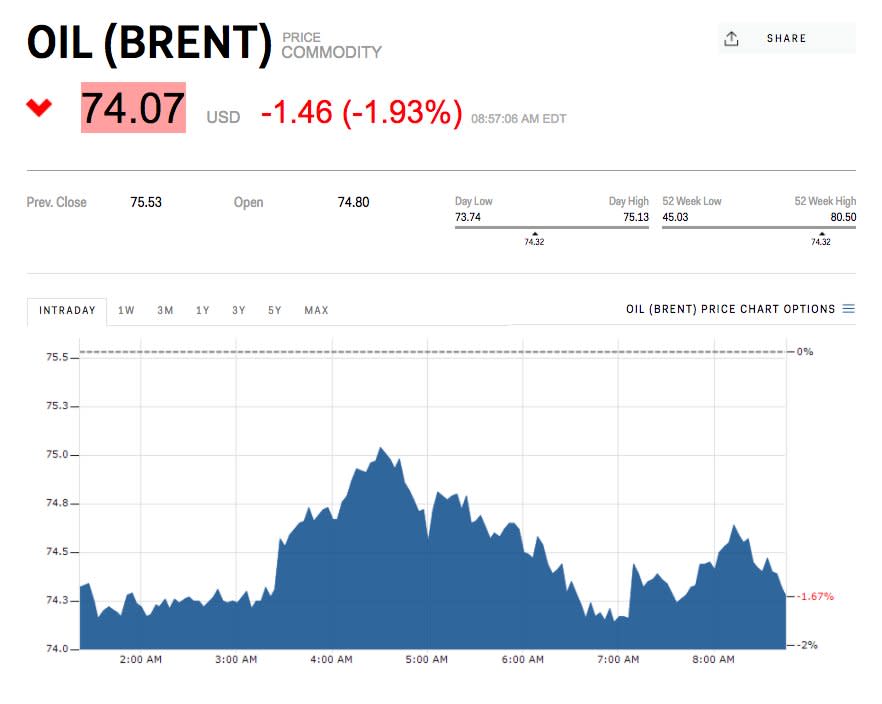Oil is sliding after OPEC cuts a deal to raise production

AP/Ronald Zak
Oil fell nearly 2% early Monday.
OPEC and other countries who coordinate output with the group agreed to raise production.
Oil prices fell Monday after OPEC and other supply-cutting countries led by Russia agreed to gradually ease oil supply cuts that have been in place for nearly two years.
Brent, the international benchmark, fell 1.8% to $74.15 at 9 a.m. ET. West Texas Intermediate was down 0.5% to $68.95.
The cartel agreed at a summit over the weekend in Vienna to reduce its level of compliance from more than 150% in May to about 100% beginning July 1. It had previously been practicing over-compliance in efforts to tackle a global oil glut that had been sinking prices for years.
While Saudi Arabia has called for a nominal supply increase of about a million barrels per day, some analysts say the actual amount will likely be smaller because of output disruptions in some countries.
Jason Gammel, an analyst at Jeffries, predicts the new agreement will bring an additional 700,000 barrels per day into the market. He sees Saudi Arabia, Russia, the United Arab Emirates, and Kuwait bringing modest supply to the market by the end of the third quarter.
"We think it is unlikely that these producers will flood the market and crater oil prices, but by the same token the effect of high prices on both demand and the temper of the US president appear to be unpalatable for the group," Gammel said.
US officials have reportedly asked supply-cutting countries to raise output by about 1 million barrels per day. OPEC has denied that allegation, but President Donald Trump has publicly lashed out at the cartel for prices he says are "too high."
Thomas Pugh, a commodities economist at Capital Economics, said Saudi Arabia's suggestion of a 1-million-barrels-a-day increase could be accurate. He predicts there could be a "sharp" increase in oil production over the next few months.
"OPEC has found it difficult to police group quotas in the past, so there is a risk of production rising above its target," Pugh said.
Still, Pugh noted the risk of production collapses in places like Venezuela, where an economic crisis has pushed oil output to record lows. He said that country and others like Iran and Angola could offset increases from the rest of OPEC and Russia, resulting in a much tighter market.
Brent is up more than 64% over the year.

Markets Insider
NOW WATCH: This top economist has a radical plan to change the way Americans vote
See Also:
Costco employees reveal the 19 worst, grossest, and most bizarre things they've seen on the job
17 incredibly useful Google products and services you didn't know existed
SEE ALSO: 10 things you need to know before the opening bell (SPY, SPX, QQQ, DIA)

 Yahoo Finance
Yahoo Finance 
